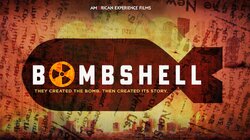American Experience

American Experience is TV's most-watched history series and brings to life incredible characters and compelling stories from our past that inform our understanding of the world today. Acclaimed by viewers and critics alike, American Experience documentaries have been honored with every major broadcast award, including 30 Emmy Awards, 4 duPont-Columbia Awards, and 18 George Foster Peabody Awards.
Futó sorozat 1988.10 - 2022.05 | 60 perc @PBS , US
Galéria David McCullough (Host), Will Lyman (Narrator)
01.07.
03:00

Epizód adatlap | SorozatJunkie | IMDb | Hozzászólások (0) |
On August 6, 1945, a revolutionary new weapon destroyed Hiroshima, a Japanese city of 300,000 inhabitants. Three days later, a second atomic bomb was dropped on Nagasaki. America's secret super-weapon was lauded for bringing about victory in the Pacific and ending World War II. President Truman's official announcement included half-truths that shaped the government's official narrative: "Sixteen hours ago, an American airplane dropped one bomb on Hiroshima, an important Japanese army base." In fact, the bomb was aimed at Hiroshima's city center for maximum psychological effect; the army base on its outskirts escaped much damage.
Eighty years after the devastating atomic bombings that ushered in the nuclear age, Bombshell explores how the U.S. government manipulated the narrative about the impact of the atomic bombings of the Japanese cities Hiroshima and Nagasaki. Through propaganda, censorship, and the co-opting of the press, the government presented a benevolent picture of atomic power, minimizing the horrific human toll. Bombshell sheds light on the efforts of a group of intrepid reporters to let the world know the truth.

